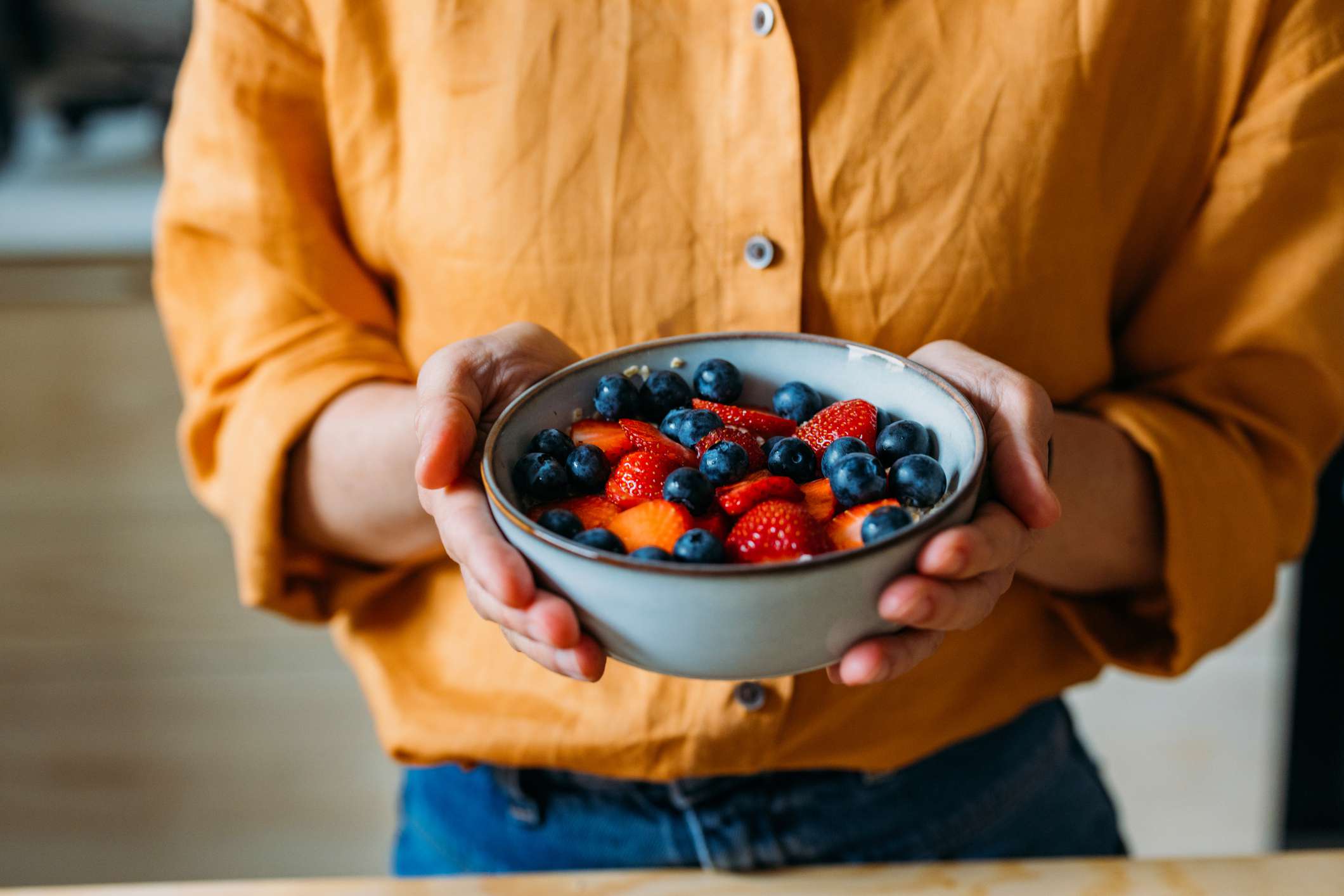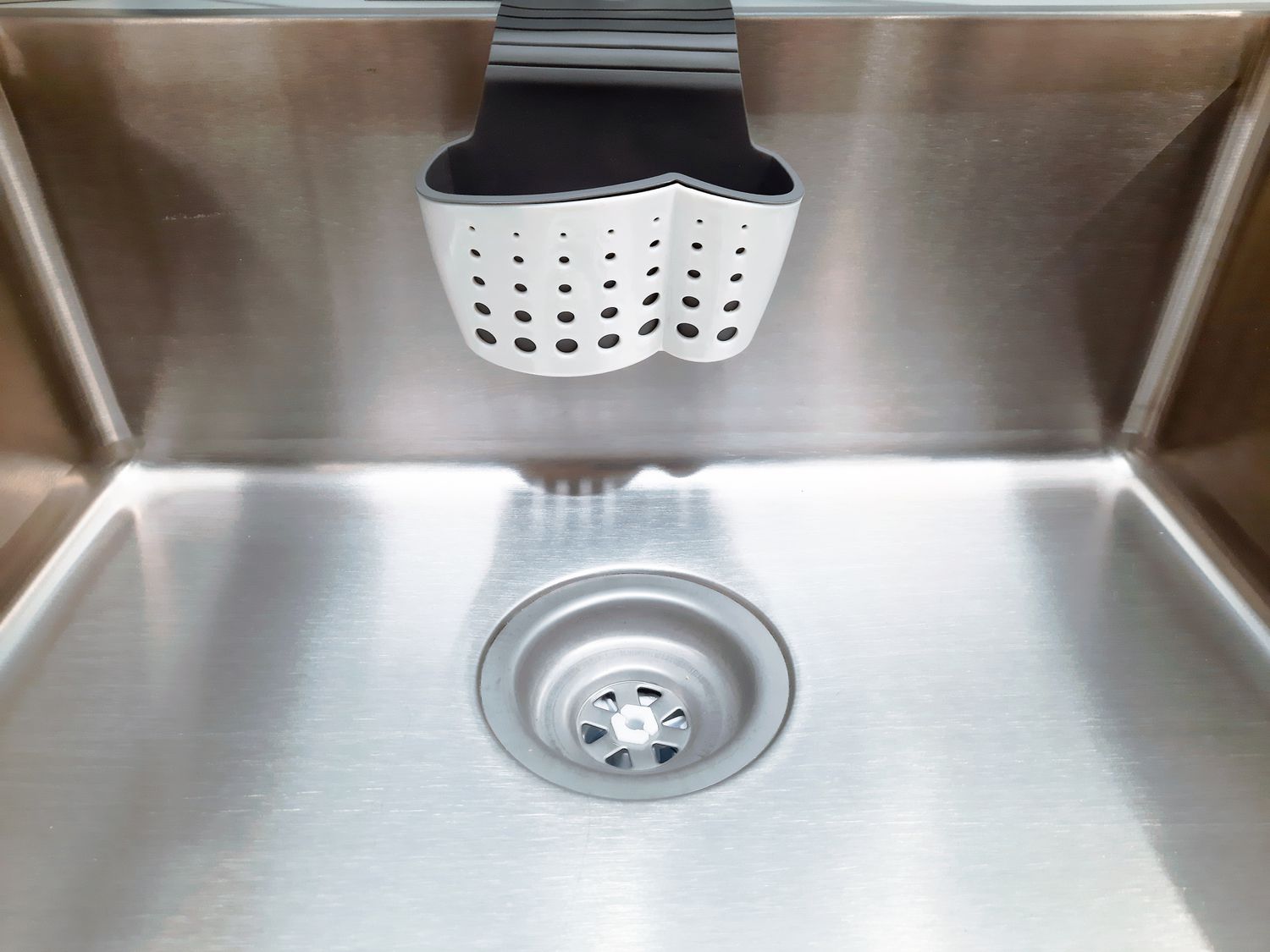
What To Eat and Drink When You Have a UTI
A urinary tract infection (UTI) is a bacterial infection that affects your bladder, urethra, or kidneys. It occurs when bacteria—most commonly E. coli—enter and invade your bladder. Common symptoms include intense urges to pee, burning sensations, peeing more often, and pain in the lower stomach.
Staying well-hydrated and eating antioxidant-rich foods can help relieve UTI symptoms and support recovery. Treatment may also include avoiding irritants and taking medications.
Staying hydrated by drinking plenty of water can help prevent and relieve the symptoms of a UTI.
Water helps flush out bacteria and toxins from your urinary tract by making you pee more often. This prevents bacteria from sticking to the walls of your bladder and causing an infection. It also dilutes urine, which helps reduce the burning sensation and discomfort during urination that can occur with a UTI.
One study involving nursing home residents found that drinking 6-8 glasses of water daily reduced the cases of UTIs that required antibiotics by 58% and hospitalizations by 36%. Another study of 140 premenopausal women showed that increasing daily water intake by 1.5 liters for a year helped reduce UTI recurrence by 50%.
More research is needed.
Cranberry juice has long been used as a natural remedy to prevent UTIs. It contains beneficial compounds called proanthocyanidins, which prevent bacteria, particularly E. coli, from clinging onto cells that line the bladder. In doing so, cranberry juice helps lower the risk of repeated infections.
However, research only supports the use of cranberry juice in women with recurrent UTIs, children, and people who are more likely to get UTIs following bladder radiotherapy. There is not enough evidence to support its use in pregnant people, older adults, and people with bladder emptying issues.
More studies are needed to clarify who might benefit from drinking cranberry juice and which dose is most appropriate.
Green tea is rich in compounds called catechins, which have been reported to have bacteria-fighting properties.
Lab studies have shown that the catechins in green tea help support the immune system, reduce inflammation, and damage the outer layer of harmful bacteria like E. coli. Green tea also blocks E. coli from forming a biofilm, which is a slimy, protective shield that bacteria create to stick together and resist treatment.
Green tea may also help certain antibiotics, like amoxicillin and ciprofloxacin, work better. These antibiotics are commonly used to treat UTIs.
More human research is needed before green tea can be recommended as a reliable option for reducing UTI symptoms.
Hibiscus tea, also known as roselle or red sorrel, may help prevent UTIs. The tea leaves contain compounds called anthocyanins that have been shown to have antimicrobial benefits, meaning they can help reduce bacteria.
One study of older adults with urinary catheters in a long-term care facility found that hibiscus drinks helped lower UTI rates by 36% compared to those who didn’t drink the tea. Another study of women with uncomplicated UTIs showed that taking hibiscus with Boswellia serrata tablets twice daily for seven days helped reduce UTI symptoms and recurrence.
More research is needed to determine if hibiscus is effective and safe for preventing UTIs.
Probiotics are beneficial bacteria and fungi that enhance gut health and can help maintain urinary tract health.
Studies suggest that specific probiotic strains, such as Lactobacillus rhamnosus and Lactobacillus fermentum, may lower the risk of repeated UTIs by preventing harmful bacteria from hanging onto the urinary lining.
Probiotics may also help prevent reoccurring UTI episodes in premenopausal women by reducing inflammation and producing substances that weaken harmful bacteria. More research is needed to understand their effectiveness.
Probiotic-rich foods include:
- Yogurt
- Kefir
- Kimchi
- Sauerkraut
- Kombucha
Blueberries are high in antioxidants, including anthocyanins, which may help protect against UTIs.
A small test-tube study using urine samples from people with UTIs showed that blueberries helped to stop the growth and reproduction of a UTI-associated bacteria called P. aeruginosa. This effect is thought to occur through actions such as disrupting the outer layer of the bacteria and interfering with its normal functions.
Older research has shown that regularly consuming fresh berry juice, including blueberry, is associated with a decreased risk of UTIs in women.
More human studies are needed.
Garlic has historically been valued for its culinary and medicinal properties, and research suggests it may help to relieve UTIs.
Fresh garlic contains a powerful compound called allicin, which has strong antibacterial effects. These compounds have been shown to reduce the growth of bacteria responsible for UTIs, including E. coli. More human research is needed.
When managing a UTI, it’s best to avoid specific foods and beverages that can irritate your bladder and worsen symptoms. These foods include:
- Alcohol: Drinking alcohol can weaken your immune system and make your gut more leaky, allowing harmful bacteria to pass through and raise the risk of infection.
- Caffeine: Consuming less than 100 milligrams of caffeine per day has been shown to reduce lower urinary tract symptoms in adults. Green tea contains caffeine, so choose caffeine-free varieties.
- Added sugar: Excess sugar intake may worsen UTIs by disrupting immune function and promoting the growth of bacteria.
- Spicy foods: Spicy foods can irritate the bladder.
- Acidic foods: Acidic foods like citrus fruits and tomatoes may irritate the bladder lining and worsen UTI discomfort.
- High potassium foods: High potassium foods like bananas and oranges may irritate the bladder.
- Cheese: Cheese may affect the gut microbiome, increasing the risk of UTIs.
- Oily fish: Oily fish, such as salmon, sardines, and trout, may increase the risk of UTIs.
Managing and preventing UTIs involves more than just dietary changes. Following medical advice and adopting new lifestyle habits also contribute to improved urinary health. Here are some additional tips to help prevent and lessen UTI frequency:
- Take medications as prescribed: Even if symptoms go away, always complete your entire course of antibiotics to ensure the infection is fully cleared. Stopping early can allow bacteria to survive and become resistant to future antibiotic treatment.
- Empty your bladder regularly: Make sure you use the bathroom when you feel the urge and completely empty your bladder when urinating.
- Practice good hygiene: Wipe from front to back to prevent bacteria from entering your urinary tract. Also, wash your genital area with warm water regularly.
- Wear breathable clothing: Wear loose-fitting clothes and cotton underwear to avoid trapping excess moisture.
UTIs are bacterial infections that affect the urinary tract. They often lead to frequent urges to pee and burning sensations. Certain foods and drinks, such as water, cranberry juice, green tea, hibiscus, blueberries, probiotics, and garlic can help to relieve symptoms.
Try to avoid caffeine, alcohol, excess sugar, and spicy foods when you have a UTI, as these may irritate the bladder and worsen symptoms. Take medications as prescribed and adopt good hygiene practices to protect your urinary health.










